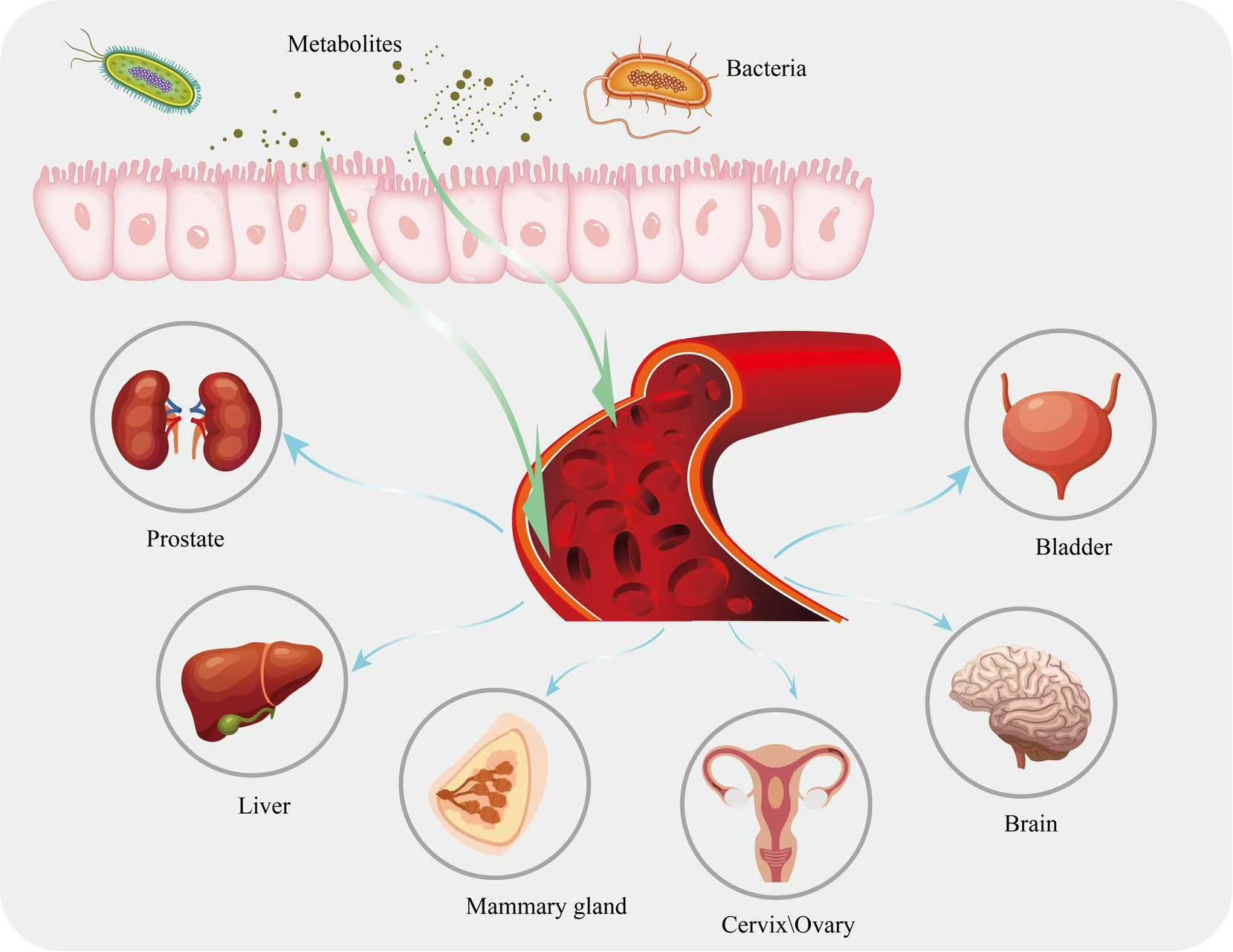
New Research Connects Gut Bacteria to Blood Disorders and Cancer in Older Adults
A revolutionary new investigation has uncovered a significant correlation between gut bacteria and age-related blood disorders, potentially transforming the way researchers tackle the prevention and treatment of ailments such as leukemia and cardiovascular disease in the elderly.
Published in the esteemed journal Nature, this study illustrates that a substance generated by gut bacteria — referred to as ADP-heptose — enters the bloodstream as individuals age, stimulating the proliferation of mutated blood stem cells. These discoveries link critical fields of science: aging, gut microbiome health, immune regulation, and the development of cancer.
What Is ADP-Heptose?
ADP-heptose is a compound generated solely by gram-negative bacteria, a type of microbe commonly present in the human gut. Typically, gut bacteria and their metabolic byproducts remain securely within the gastrointestinal system. However, as we age, the intestinal barrier — which prevents bacteria and other potentially harmful substances from entering the bloodstream — becomes increasingly leaky. This phenomenon, often described as “leaky gut,” permits substances like ADP-heptose to enter systemic circulation.
Researchers have now pinpointed ADP-heptose as a novel environmental factor that affects the behavior of specific blood stem cells implicated in age-associated conditions.
CHIP and Its Health Implications
The research concentrates on a condition termed clonal hematopoiesis of indeterminate potential (CHIP), impacting around 10–20% of individuals aged 70 and above. CHIP arises when blood-forming stem cells in the bone marrow develop genetic mutations that lead them to proliferate more rapidly than normal cells, resulting in large clusters of genetically identical cells — or “clones.”
While many individuals with CHIP remain asymptomatic, some develop blood cancers like leukemia. Additionally, CHIP significantly heightens the risk of cardiovascular problems, including heart attacks, stroke, and thrombosis.
The Role of ADP-Heptose in the Promotion of Mutated Blood Cells
The research team — consisting of scientists from various institutions — demonstrated that DNMT3A-mutant blood stem cells, a prevalent form of CHIP-related mutation, show heightened vulnerability to the impacts of ADP-heptose.
Their pivotal discovery: these mutated stem cells express elevated quantities of ALPK1, the only known receptor that binds ADP-heptose. When ADP-heptose interacts with this receptor, it triggers a cellular response that promotes the growth and survival of mutated cells at the expense of healthy ones.
“Our knowledge of the environmental and regulatory factors behind clonal hematopoiesis during aging is still quite limited,” the researchers remarked in the Nature article. “This research points out a vital bacterial metabolite and its signaling pathway as a catalyst for disease progression.”
Animal Research Validates Pathway
In a series of experiments, the researchers transplanted DNMT3A-mutant stem cells into mice and subjected them to ADP-heptose. The outcomes were remarkable: the mutated cells outperformed healthy stem cells, imitating the clonal expansion observed in human CHIP cases. When the researchers genetically removed the ALPK1 receptor from these cells, their growth advantage vanished — confirming a direct involvement of the ADP-heptose-ALPK1 interaction in disease onset.
Treatment and Prevention Implications
The identification of this microbial mechanism opens several promising therapeutic options. If methods can be created to inhibit ADP-heptose from attaching to ALPK1 — either by targeting the receptor or the bacterial metabolite itself — researchers might prevent the transition from CHIP to leukemia or lower the related cardiovascular risks.
“This could be revolutionary,” stated Dr. Daniel Starczynowski, one of the study’s authors. “It provides us with a tangible target — the ADP-heptose-ALPK1 signaling pathway — that could significantly impact how we manage risk in aging populations.”
Beyond Blood Disorders: A Wider Health Connection
The study also indicated that CHIP patients with elevated levels of ADP-heptose in their blood experienced higher rates of hypertension and venous thromboembolism, suggesting broader implications for systemic inflammation and vascular health.
These findings highlight an evolving perspective: the human microbiome influences aspects far beyond digestion. Alterations in gut health, particularly those linked to aging and compromised gut barriers, may play an underestimated role in severe diseases affecting blood, heart, and immune system.
Gut Health and Aging: A New Frontier
This research supports the notion that sustaining gut health is vital for healthy aging. Approaches that enhance intestinal barriers or selectively modify gut flora may aid in reducing the release of harmful microbial metabolites like ADP-heptose into the bloodstream.
As society grapples with the challenges of a swiftly aging population, such revelations are not only timely but critical. Scientists are increasingly advocating for a holistic view of health where age-related diseases are interconnected rather than isolated.
The Path Forward
Further investigation is necessary to determine optimal intervention strategies.